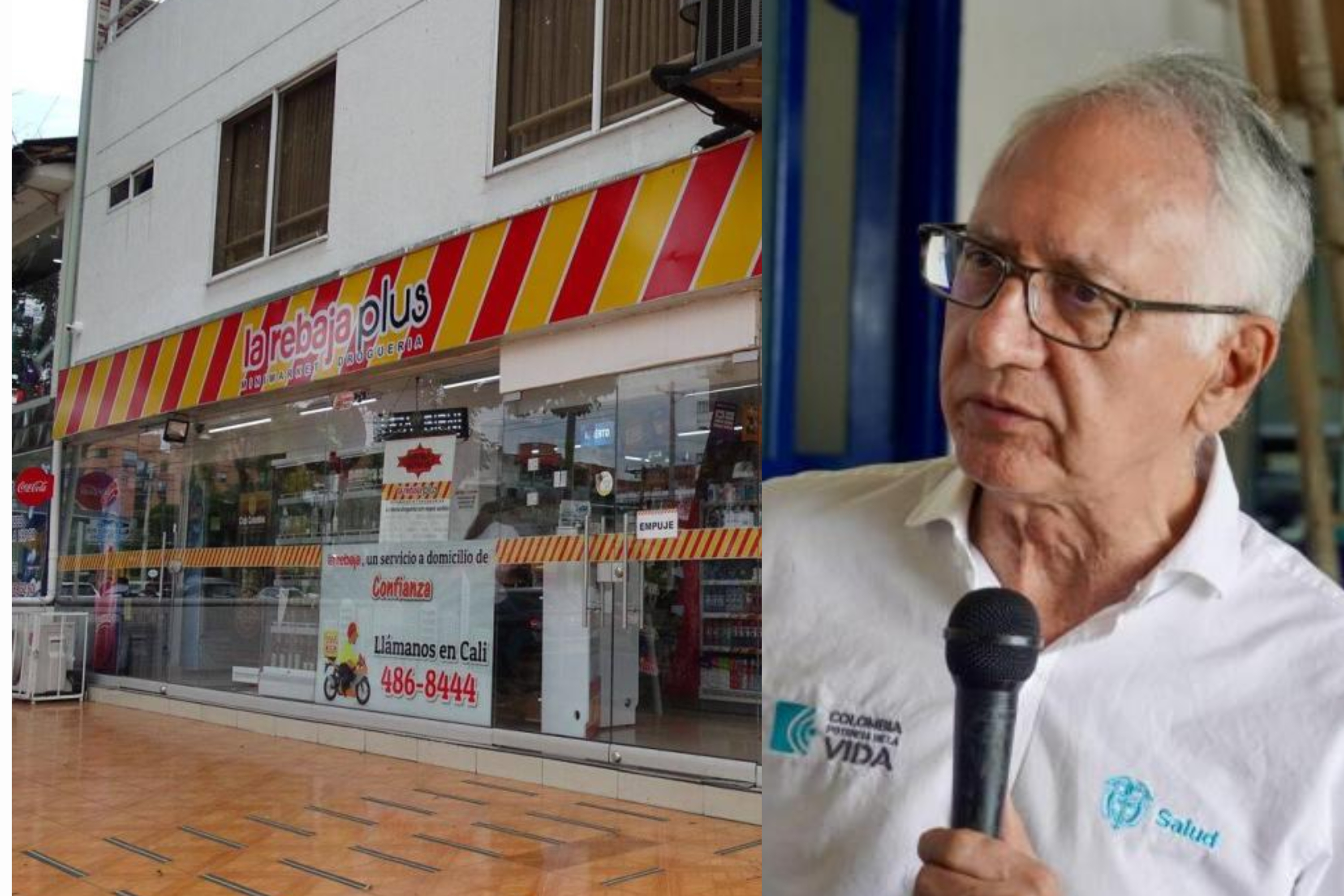What will be the future of Drogas La Rebaja? There is concern about the impact on the distribution of medications to patients.

The pharmaceutical company Drogas La Rebaja , which has more than 800 establishments throughout Colombia, was officially handed over by the Special Assets Society (SAE) to the Ministry of Health and Social Protection .
This was announced by the head of this national government department, Guillermo Jaramillo, along with the president of the SAE, Amelia Pérez, on Monday, following a lengthy transfer process that they described as rigorous. This concludes the process that began in May of last year, when the shares of this brand's business group, along with its commercial establishments, were transferred to the Ministry of Health.
The news has sparked a debate about the scope of this decision and its implications for the Colombian healthcare system. Although the Executive Branch has insisted that the measure will guarantee access to medicines throughout the country , experts warn that the logistical and administrative challenge could have negative consequences.
For Ramón Abel Castaño, a health systems consultant, the problem lies in the fact that La Rebaja's business model is not designed to meet the needs of health insurance, where medications are delivered to EPS members and paid for by a third party.
“Drogas La Rebaja is an entity that sells medications retail to the public. Moving from there to operating within the institutional social security market involves developing a number of processes and structures that the organization doesn't have ,” he explained.
Castaño points out that while the retail market is limited to direct sales, the institutional market requires detailed controls: from verifying who a medication was delivered to avoiding double claims or diversions to the black market.
"Drogas La Rebaja isn't doing that, nor will it do it with its current model. It needs to completely redesign its business," he added.
For his part, epidemiologist Luis Jorge Hernández also suggests that the transfer of La Rebaja could shake up the market and even benefit the end consumer.
"The transfer can boost competition by offering low-cost generic drugs and improving access in remote areas, forcing private pharmacies to adjust prices and services," the expert notes. However, he warns that state subsidies or inefficiencies could distort the market, displacing private competitors if not properly regulated."

Drugs The Sale Photo: Private archive
Another critical point, according to Castaño, is the impact this decision would have on the current logistics operators that currently supply EPSs under the contributory and subsidized regimes.
" If the seven EPSs under government intervention, which represent more than 57% of the country's affiliates, transfer all their purchases to La Rebaja, it will create a market shakeup . Many distributors could disappear, and the greatest risk is that this new operator won't have the capacity to comply with the required model," he noted.
The consultant believes that, far from solving access problems, the measure could end up affecting patients:
"The rhetoric that medicines will be purchased more cheaply and delivered more easily is just that: rhetoric. The real test is how they're going to operate that business."
What will La Rebaja become? For Hernández, the transformation of this network will go beyond being just a pharmacy chain.
" Drogas La Rebaja will be transformed into a public drug distribution network and primary care centers, producing generic drugs and possibly vaccines to guarantee supply and equity in the Colombian health system, integrating with the EPSs if they do not disappear. The State is not a good administrator, and there is a risk of inefficiency and corruption," he said.
Castaño also questions the fact that the State is once again taking over industrial and commercial companies, when in past decades they were privatized due to their low efficiency.
"When the state manages companies in the industrial and commercial sectors, they almost always end up performing poorly, because they become sites of corruption or electoral machinery . That's why, since the 1980s and 1990s, governments have divested state-owned airlines, banks, and factories," he recalled.
In his opinion, the decision to turn La Rebaja into a state-owned pharmaceutical company is "a leap into the void" and a step backward:
"The private sector already offers highly developed and sophisticated logistics services. In large urban centers, where demand is highest, La Rebaja won't be competitive. This could turn into a disaster."
eltiempo



%3Aformat(jpg)%3Aquality(99)%3Awatermark(f.elconfidencial.com%2Ffile%2Fa73%2Ff85%2Fd17%2Fa73f85d17f0b2300eddff0d114d4ab10.png%2C0%2C275%2C1)%2Ff.elconfidencial.com%2Foriginal%2F58a%2F8f2%2F014%2F58a8f2014a5905919f95d72694d61f67.jpg&w=1280&q=100)
%3Aformat(png)%3Aquality(99)%3Awatermark(f.elconfidencial.com%2Ffile%2Fa73%2Ff85%2Fd17%2Fa73f85d17f0b2300eddff0d114d4ab10.png%2C0%2C275%2C1)%2Ff.elconfidencial.com%2Foriginal%2F972%2F505%2Fe12%2F972505e121dc61f9be872946a7b98578.png&w=1280&q=100)
%3Aformat(jpg)%3Aquality(99)%3Awatermark(f.elconfidencial.com%2Ffile%2Fa73%2Ff85%2Fd17%2Fa73f85d17f0b2300eddff0d114d4ab10.png%2C0%2C275%2C1)%2Ff.elconfidencial.com%2Foriginal%2F5e2%2Fa73%2F574%2F5e2a73574438ad7753bdc9ec02fabfc3.jpg&w=1280&q=100)